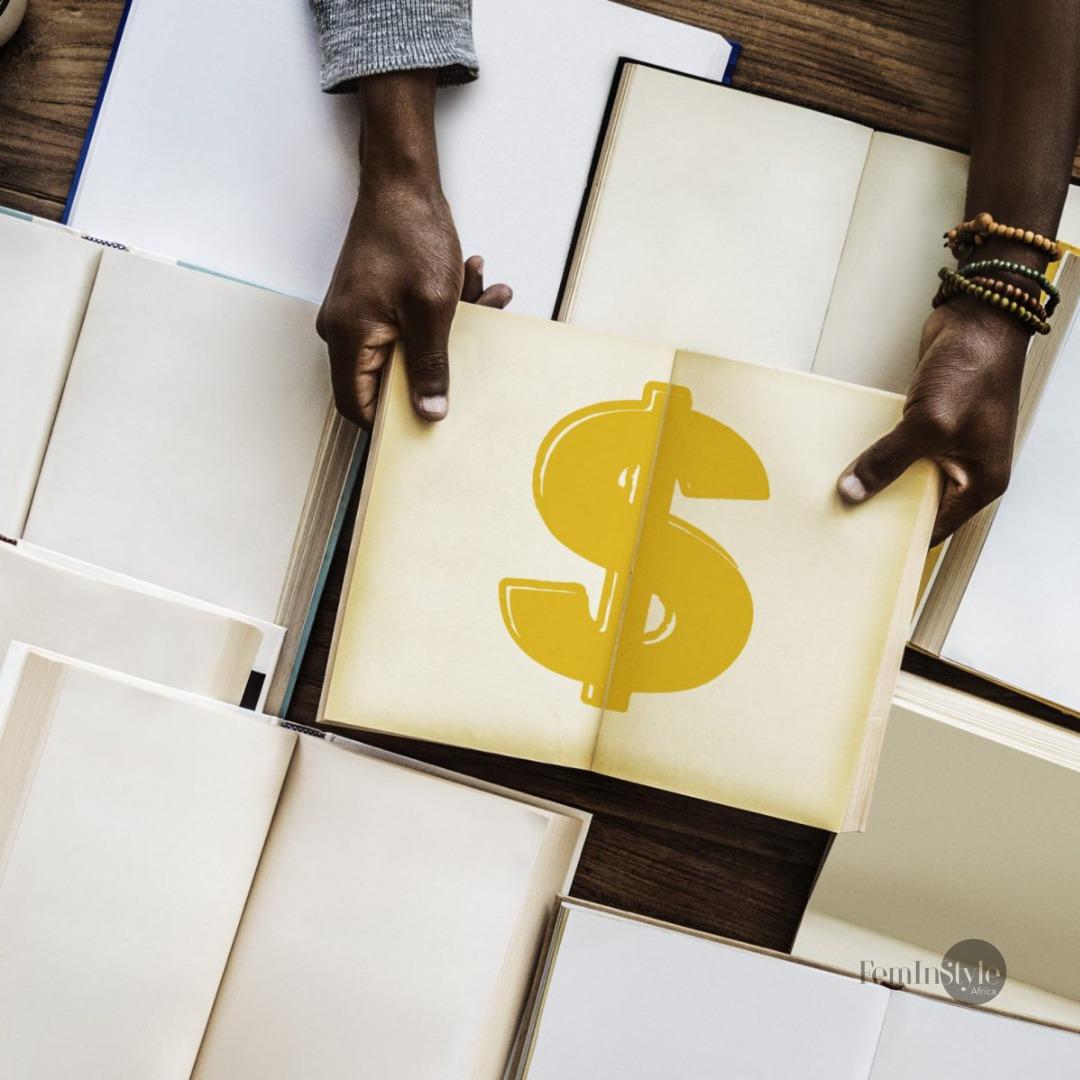I fill my kettle with water as I need to brew myself some tea. This is my drink of choice for this auspicious occasion. It’s the first day of the month and it’s my money date. I have been keenly reading on finances and writing about it too, mainly because when the year started I was deep in debt and I realized early on that only I could save myself from this self-inflicted pit. Did I get a headstart in my career? Yes, Did the head start come with good benefits? Yes. Did I splurge on wants instead of needs to the point that I was in debt? Yes. I needed to get my finances in order and this would, in the long run, straighten up my life. Where I hail, that is in the Western Kenya, financial literacy is a taboo. No one talks about money’s importance or it’s management and this has really cost us. My parents seem to just wing it when it comes to money so I come by my financial ineptitude honestly, learned from the Maombola School of Finance. I have never seen my parents talk about money, neither have they ever budgeted for anything in their lives.
Clearly, I am not alone, the Wanjiku Schools of Finance teach the same curriculum. This lack of financial knowledge explains the FinAccess 2019 household survey, which found that although financial inclusion had risen fourfold (to about 80%) over the last 15 years, financial literacy lagged behind with less than half the adult population able to correctly calculate interest on a loan and more than a third unable to understand transaction costs. Indeed, only a fifth of the adult Kenyan population is considered financially healthy.
As an adult who is very much part and parcel of this survey, my time was up. It was time for me to level up financially. My relationship with money was non-existent before the pandemic. All I did was earn and blow my paycheck, but when the pandemic threatened my main source of income, it served as a wake-up call.
Having decided to improve my relationship with money, I did what anyone does in a relationship. I mean, I like my money and I want a continued positive experience with it so I figured it was time to set up a few dates. Money dates.
“Our relationship with our finances is one of the most practical and life-impacting relationships we have. And, as with any relationship, it’s important we stop and assess the partnership dynamics. We need to regularly check-in to ask ourselves how we feel about money, what we get out of it, and what we hope to ultimately achieve with it.” Girlboss.

A money date is a designated time for an individual, couples, or even family members to come together and talk about money and the things that matter most in a way that makes everyone comfortable and makes finances more understandable. It’s a scheduled conversation—a date—around one’s money, as well as your goals, your values, your priorities, and what you want to accomplish in life. It is important to have them frequently and at a particular time in order to avoid getting overwhelmed as money is still a touchy subject in most of our homes. A money date is a chance for everyone to understand where they stand in regards to their finances. These dates also allow for proper communication between individuals or family members in regards to their financial goals. Money is power, we are all aware of this, hence the need for a money date which affords the individual the power to make better financial decisions. Money dates alienate the feeling of shame or guilt where savings or frugality are concerned. Money dates put us in the driver’s seat as with time, we start to understand our relationship with our money and the positive changes we can make in our finances. A money date, especially for Kenyan women who are often left out of the power dynamic surrounding money, is a form of empowerment, a strike against the patriarchy and the social norms especially in my part of the world where women are still left behind when conversations around money are being held.
This is why it’s so important to have “money dates” with yourself on the regular. It’s when you can check in on your finances, assess your “status,” and figure out your next steps. But how do you start? ” Start whilst afraid, start without the knowledge, start with nothing, just start” I was once advised. This is the same mindset we all need when embarking on the journey to straighten our finances and a money date to be specific. Start anyway.
These are the questions that I had to ask myself before starting my series of money dates.
1. Do you like your financial situation at the moment? Are you okay with things as they are?
What is the state of your debt? What about black tax; is that draining you? A look into one’s savings and spending habits will aid in determining a prognosis. In simple terms, do you like your financial position?
2.What’s your relationship with money? Are you still swiping left or right or do you hope to work on yourself?
Do your finances make you anxious? Are you a spendthrift or are you frugal? Are you a miser? Getting into the nitty-gritty details about your finances is important. But it’s also crucial to reflect on your emotional relationship with money. By responding to such questions, one will get a footing on what their relationship with money is and in the long run work on it instead of hiding behind credit card debt and the likes.
What action needs to be taken?
What changes need to be made in order for you to have a healthy relationship with money?

money
3.What is your financial end goal? What are you looking forward to in the next 5 or 10 years?
I will respond to this one by saying that in the next 5 years I’d like to have 3 million Kenya shillings which translates to 27,371.55 USD in my emergency fund. To achieve this, however, I’ll have to put in the work. I will have to check on my spending habits, pay off my debts, and live frugally. What is your financial goal? What are you demanding from yourself and also the universe when it comes to your cashflow?
Brainstorming and deciding where you want to be financially in a few years allows you to not only put it out into the universe (always a good thing), but to also have a clear long-term financial goal. When you have a vision for where you want to be, it’s easier for you to backtrack to where you are now and determine the measurable steps to get there.
The above points will help you determine where you stand in regards to your finances. With this in mind, you can then draw a blueprint of what needs to change to bridge the gap between where you are now and where you should be.
The checklist below can come in handy for a beginner who wants to start having money dates.
Use this checklist to help plan your next money date:
- Check your credit score report
- Make a plan to tackle your credit card debt—Review the status of your student loan(s)—
- Calculate your cost of living
- Review your benefits and plan for retirement
- Open a smart savings account like with an online bank
- Look for ways to start investing your funds and buying stocks
- Find ways to save on your regular bills and subscriptions
- Meal prep your way to extra savings
- Look for ways to do a spending detox and a “no-spend” month
My tea is ready, my date is waiting, wish me success!





